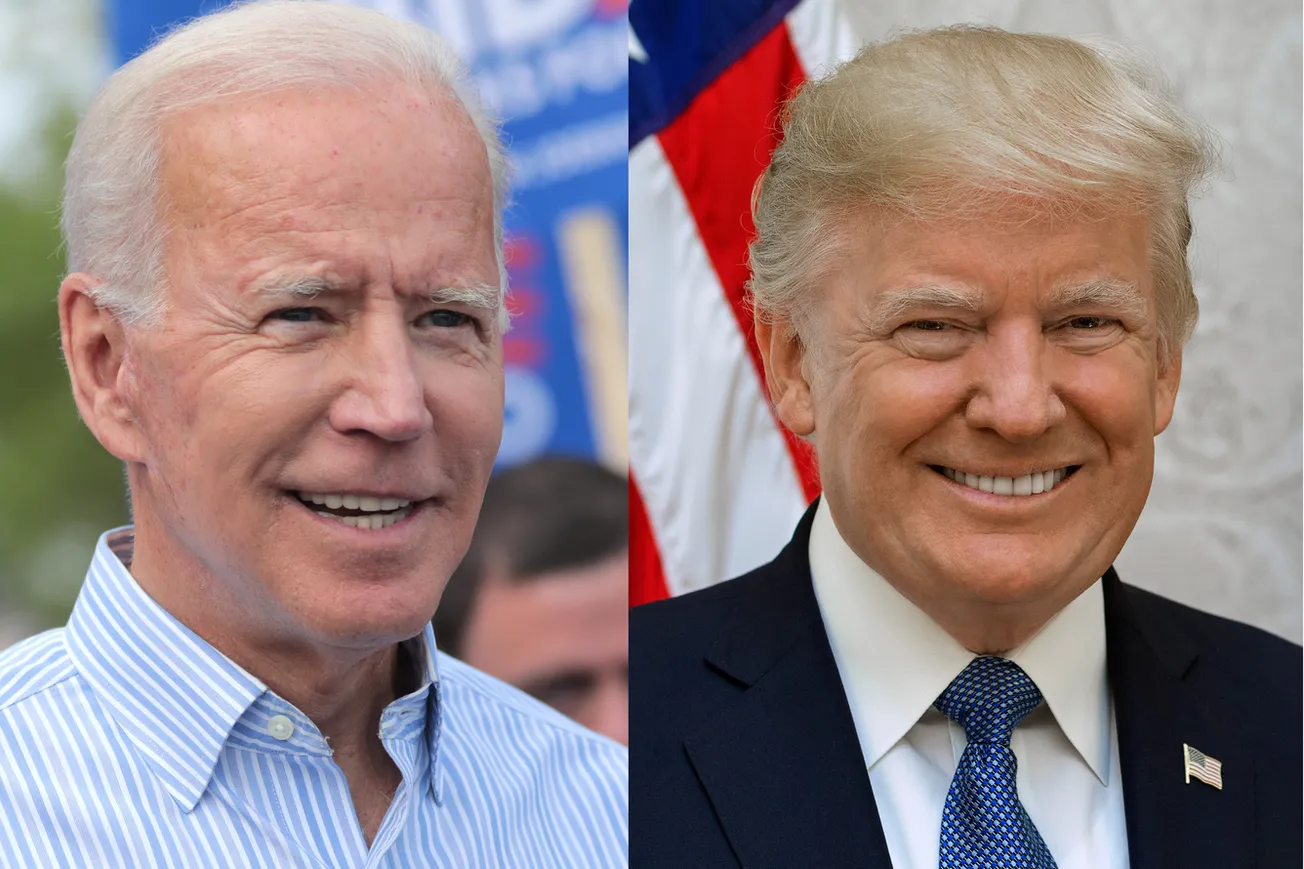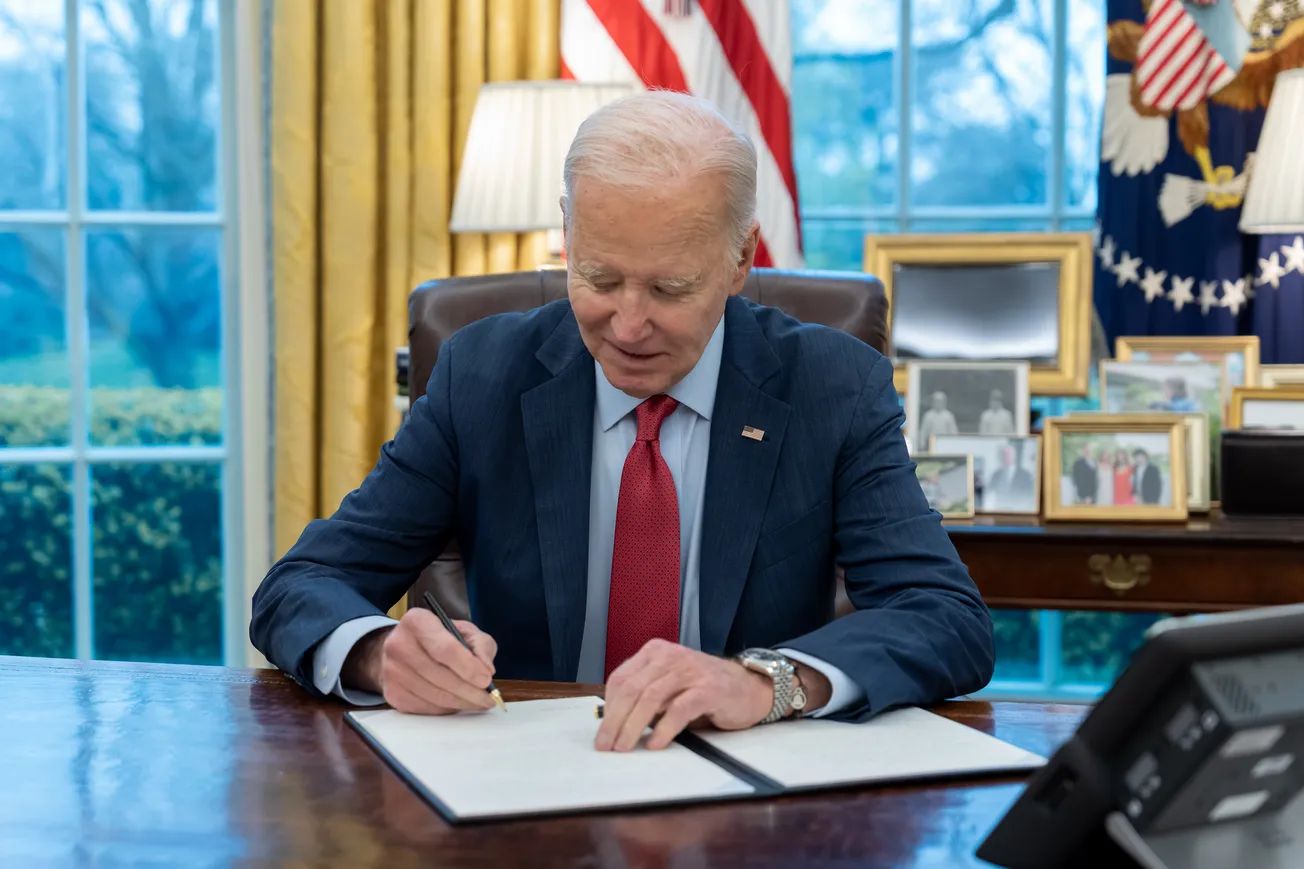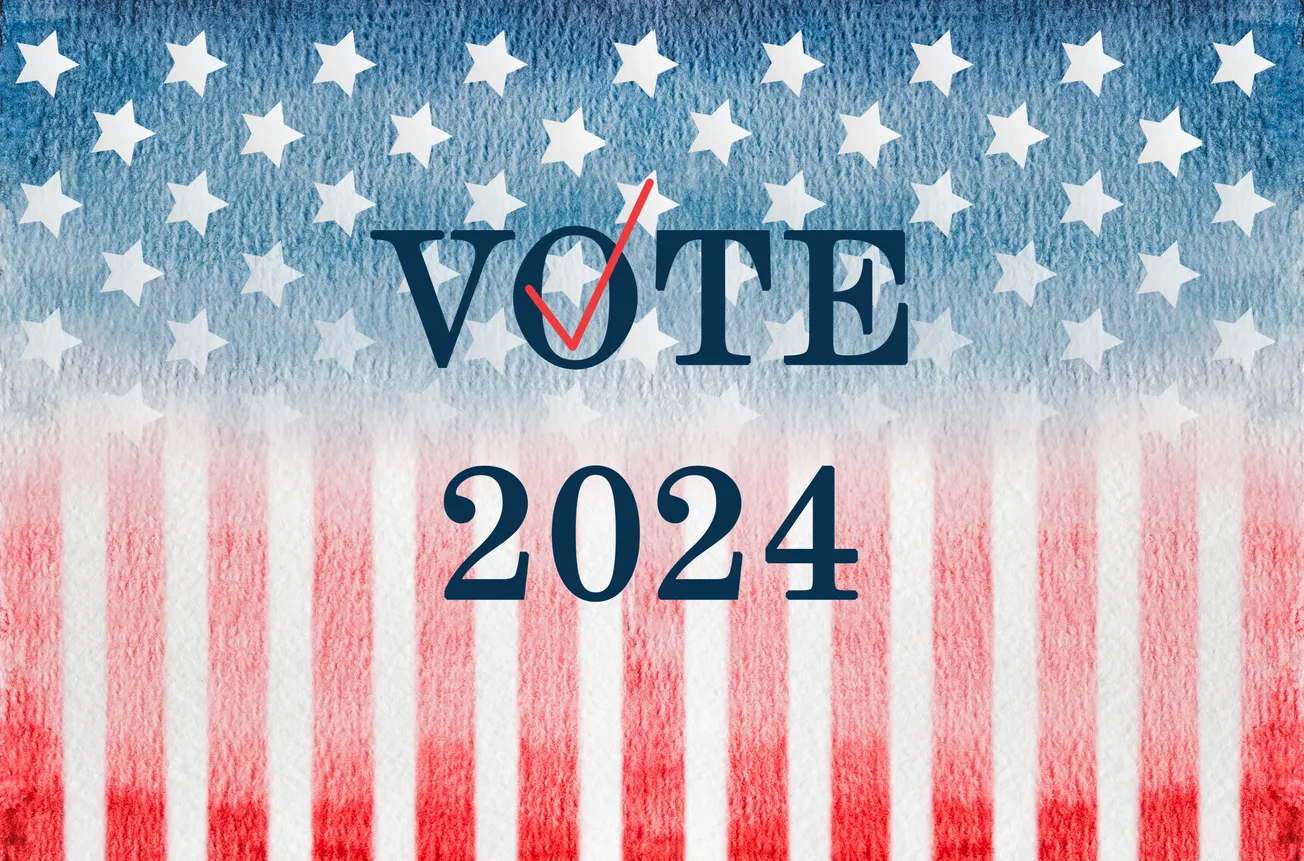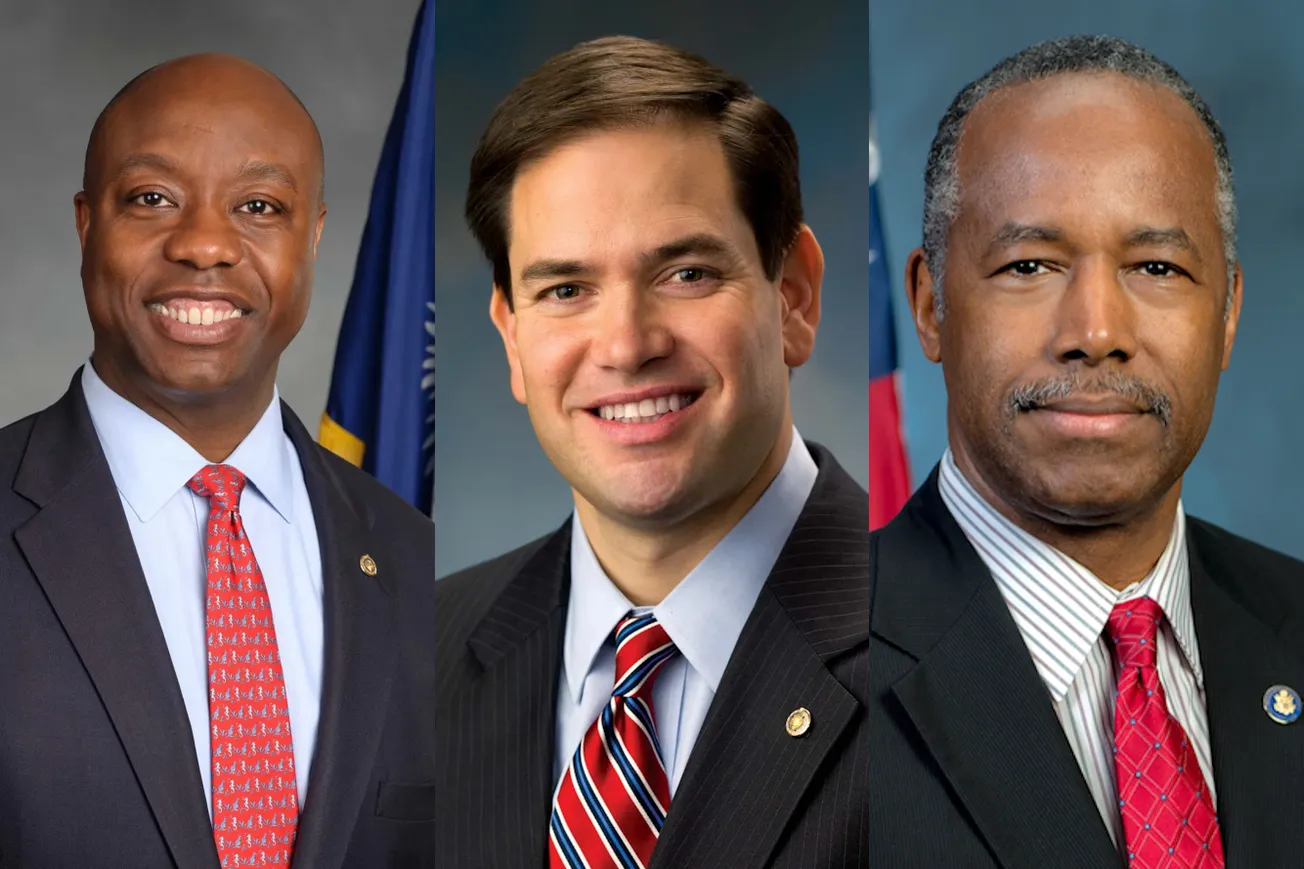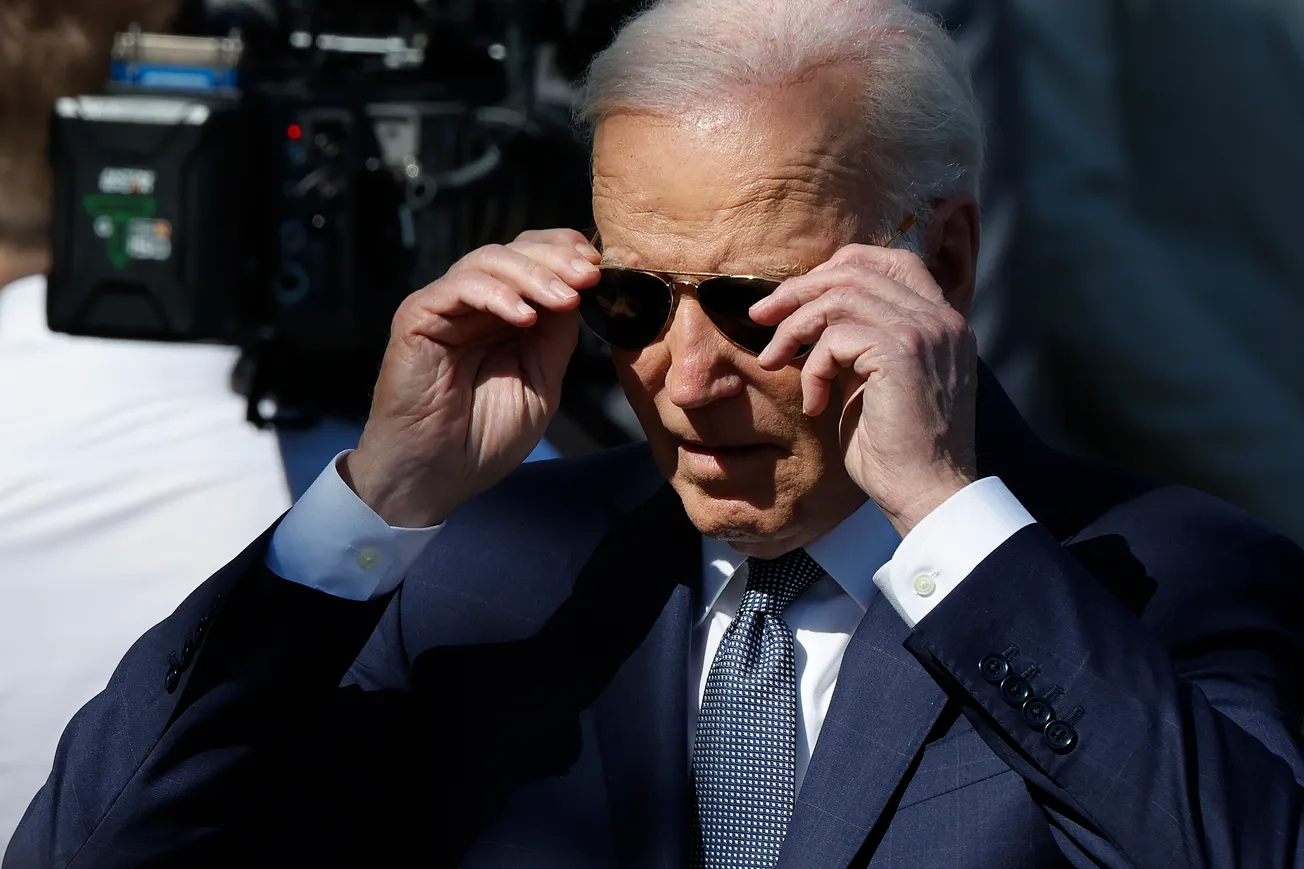If veteran poll watchers were expecting declines for both President Biden and former President Trump within their own parties, they have no doubt been sorely disappointed. Despite plenty of negative media coverage in recent weeks, both potential candidates have widened their leads within their respective parties, the latest I&I/TIPP Poll data show.
Let's start with the Democrats. In this month's online poll, taken from March 1-3 among 659 registered voters who are Democrats/lean Democrat, we asked voters once again: "If the Democratic presidential primary were held today, whom would you support for the nomination?"
As happened in February, Biden came in solidly ahead of all potential challengers. Of those participating in the poll, 43% said they support Biden, up from 38% last month. The margin of error for the subsample is +/-4.0 percentage points.
The breakdown: 47% of Democrats say they'll support Biden, while just 15% of independents will.
Biden's numbers are trailed in second place by Vice President Kamala Harris (9%), and in third place by former First Lady Michelle Obama, Independent socialist Sen. Bernie Sanders, and "Not sure," all at 8%.
No other candidate gets even 5%. That includes former Secretary of State and First Lady Hillary Clinton (4%), Transportation Secretary Pete Buttigieg, Minnesota Sen. Amy Klobuchar, and Massachusetts Sen. Elizabeth Warren (3%), with a handful of others (including "someone else" at 2%) all at 2% or less.
In sum, all 14 of Biden's Democratic challengers added together do not have 43% support from their own party. At this point, and it's very, very early, Biden has a clear lead within his own party, though not a majority.
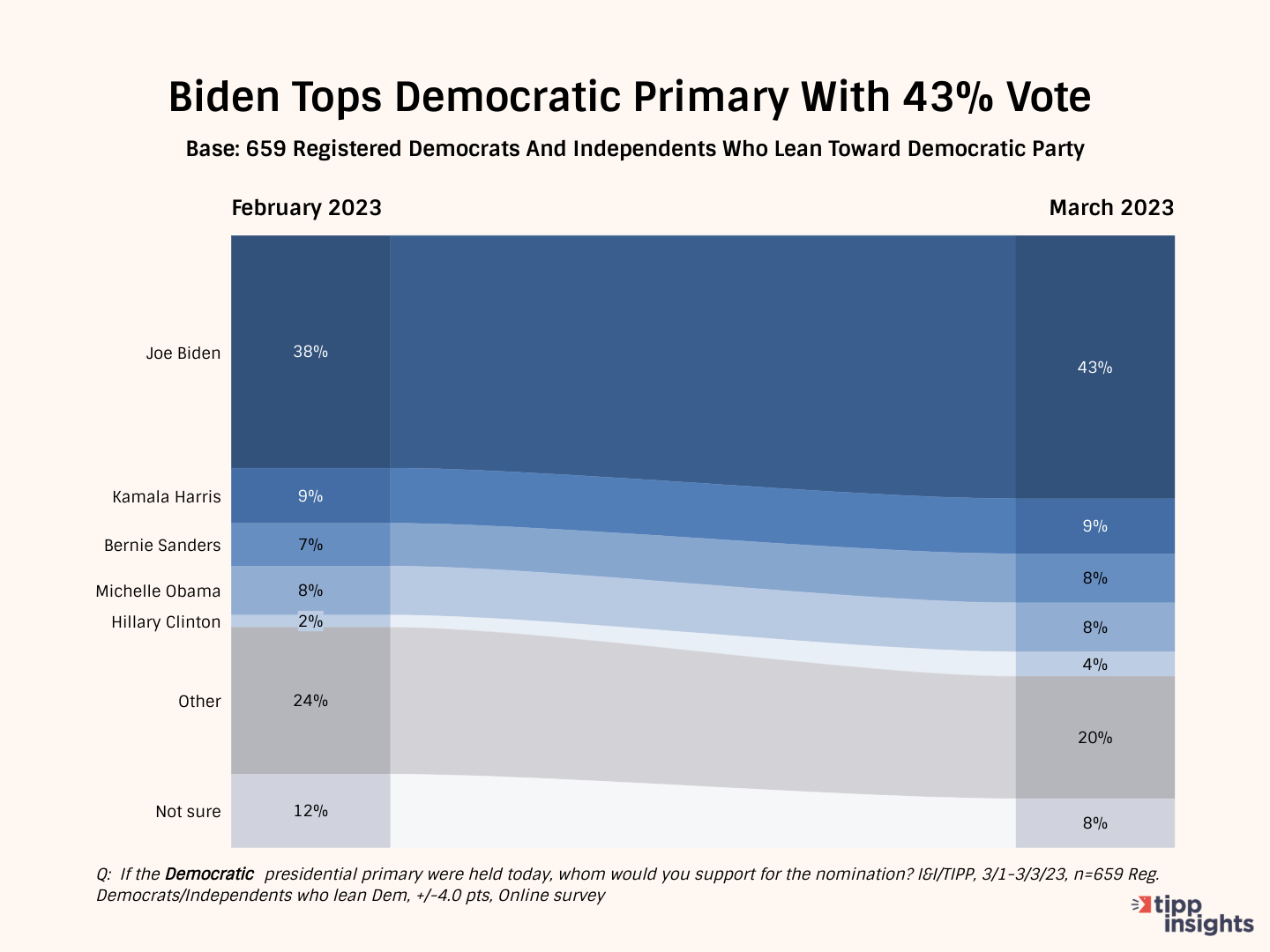
What about the Republicans and former President Trump?
In this month's public-opinion poll, 51% of 455 Republicans and GOP-leaning independents said they would support Trump, up from 50% in February. The margin of error for the subsample is +/-5.0 percentage points.
But unlike Biden, Trump has a challenger who lurks much closer than any of Biden's challengers: Popular Florida Gov. Ron DeSantis, who gets 22% of the GOP tally.
As with the Democrats, the support for others within the Republican Party trails off sharply from there: Former Vice President Mike Pence (7%), former South Carolina Gov. Nikki Haley (4%), and former Secretary of State Mike Pompeo (2%).
After him, support ranges from 0% for former New Jersey Gov. Chris Christie and current New Hampshire Gov. Chris Sununu to 1% each for former Maryland Gov. Larry Hogan, South Dakota Gov. Kristi Noem, and entrepreneur/author Vivek Ramaswamy.
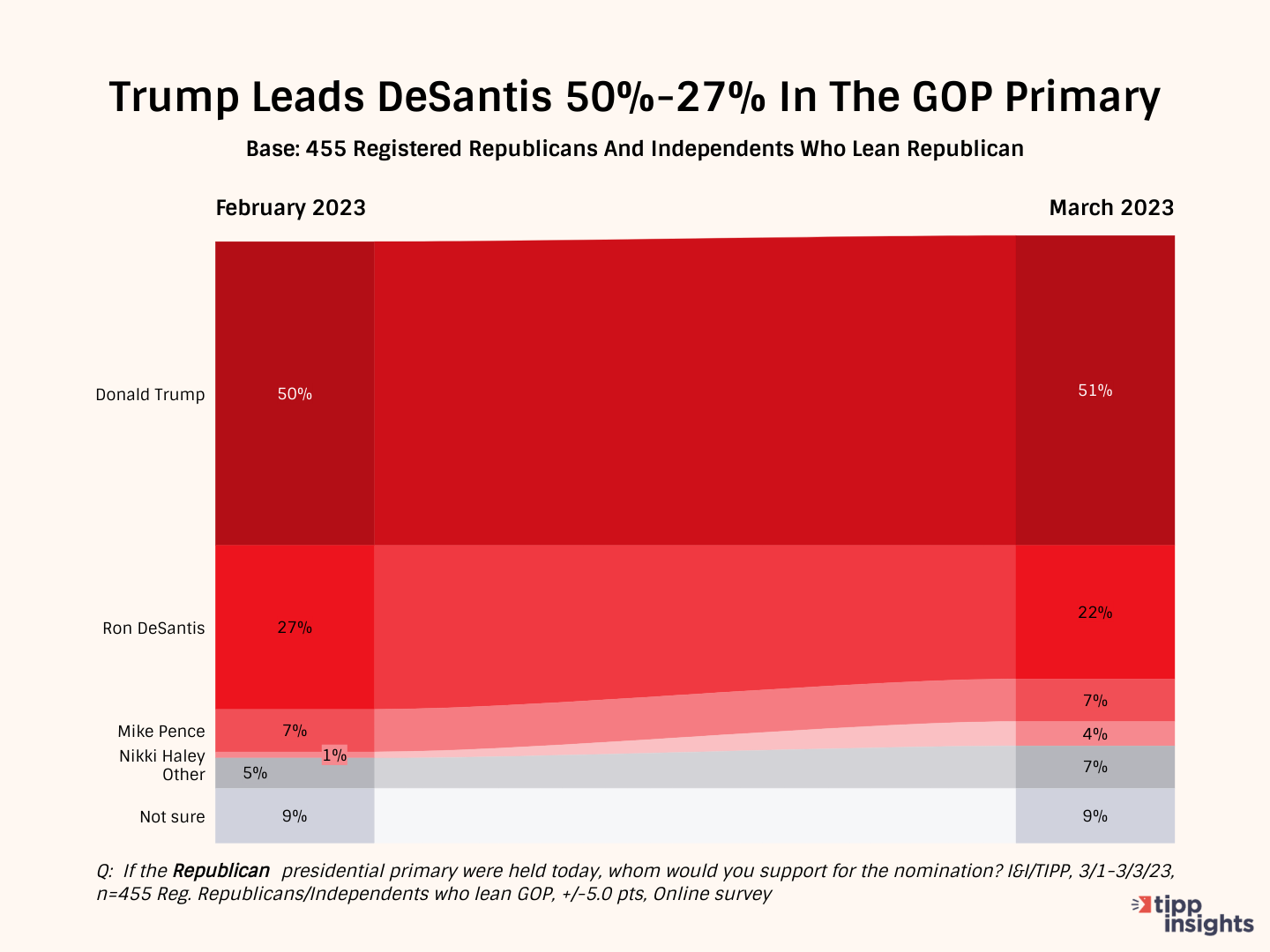
In the March poll, we also once again asked whether Republicans and GOP-voting independents whether they agreed or disagreed with the following statement: "I would like to see a primary contest between Donald Trump and Ron DeSantis".
Once again, it's a popular idea: The controversial, but successful, former president vs. the highly popular Florida leader who turned his state from Blue to Red. By 59% ("agree") to 29% ("disagree"), Republicans said they'd like to see the matchup.
That compares to last month's reading of 61% to 23%, a slightly larger margin.
For March, a majority of both GOP party regulars (61% "agree" vs. 28% "disagree") and independents (52% vs. 32%) want to see this contest. This suggests that, at minimum, Republican opinion, while heavily tilted toward Trump right now, has not foreclosed on the possibility of voting for someone else such as DeSantis.
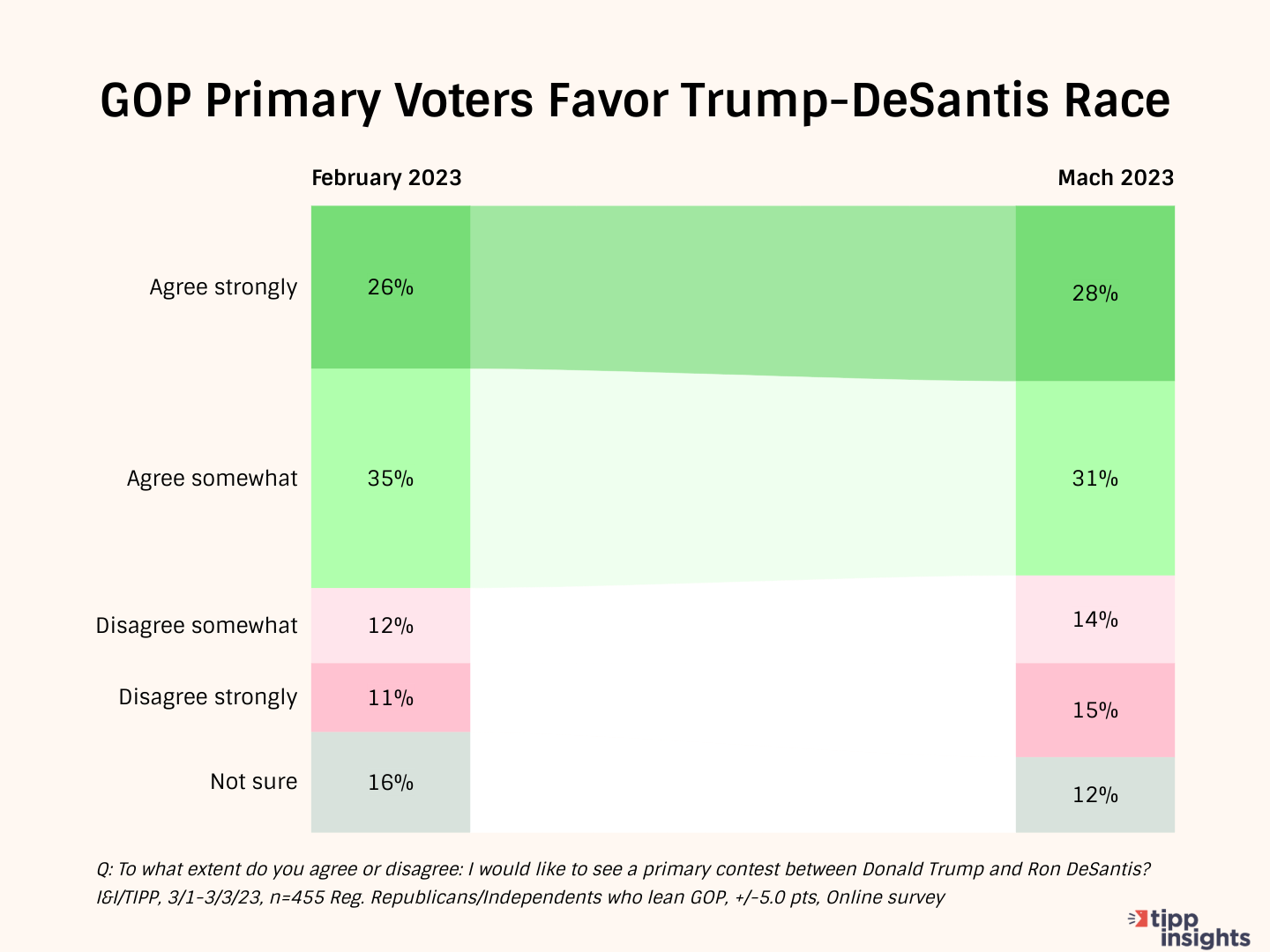
Of course, this early in the two-year presidential selection process for both parties it's difficult to make early prognostications. Still, if this were a horse race, it would right now be a three-horse race: Trump, Biden, DeSantis. No one else registers as a threat to those three, at least not yet.
Other polls are finding similar. A McLaughlin & Associates poll, for instance, gave Trump 42% support among Republicans to DeSantis' 26% support. And, as with I&I/TIPP, no other candidate got into double-digits.
Moreover, while Biden still has the bully pulpit of the presidency at his disposal, potentially a potent political weapon, Americans are showing deep disgruntlement with the way things are going.
Since Biden took office, a tripling of inflation, lagging employment, jumps in energy prices, surging interest rates, scary crime rates, soaring illegal immigration have made life worse for many Americans. Indicators of social division have all worsened. Average Americans also didn't like Biden's abrupt withdrawal from Afghanistan, resulting in 12 American deaths, or how the administration handled the COVID pandemic.
Another major looming problem: Enormous budget deficits and debt. Biden's newly proposed budget, as Issues & Insights recently pointed out, will increase taxes by almost $5 trillion and spending by nearly $2 trillion from the already-swollen levels over the coming decade.
But will it fly? A recent Roll Call poll asked: “Which is a bigger problem, government spending or not enough revenue coming in from taxes?” The answer: Government spending, 70%, Not enough revenue, 23%.
Another more basic problem for Biden is the slow motion dissolution of some of the Democrats' traditional voting base, including white working class, hispanics and Asians. Many feel alienated from the Democrats because of recent economic trends, but also because they feel the Democratic Party is pandering to them.
Even socialist Independent Bernie Sanders, who ran for president as a Democrat, admitted recently:
"(W)hen FDR was president, when Truman was President, even when JFK was president, you go out on the street, and you say to people which party represents the working class of America. Most people . . . would have said the Democratic Party. Today, you go out on the street, that is not the sentiment. In fact, the Republican Party probably has more adherents than the Democrats."
As Democratic political scientist Ruy Texeira recently told PBS: "I mean, we have people in and around the Democratic Party talking about how all white people have white privilege and how this is a white supremacist society and so on. And I just don't think this is the way people think about the world, including, you know, normie nonwhite voters."
Right now, polls show Democrats and Republicans running neck and neck. Will Trump or DeSantis push ahead of Biden? Or someone else? Or can Biden hold on?
Trump has become a lightning rod for the GOP, and many in the party are wary of fully embracing the controversial billionaire populist. Many Americans are just getting to know DeSantis, who says America has a choice between two models: failed progressive California, or "the free state of Florida."
I&I/TIPP publishes timely, unique and informative data each month on topics of public interest. TIPP’s reputation for polling excellence comes from being the most accurate pollster for the past five presidential elections.
Terry Jones is an editor of Issues & Insights. His four decades of journalism experience include serving as national issues editor, economics editor, and editorial page editor for Investor’s Business Daily.
Hey, want to dig deeper? Download data from our store for a small fee!

